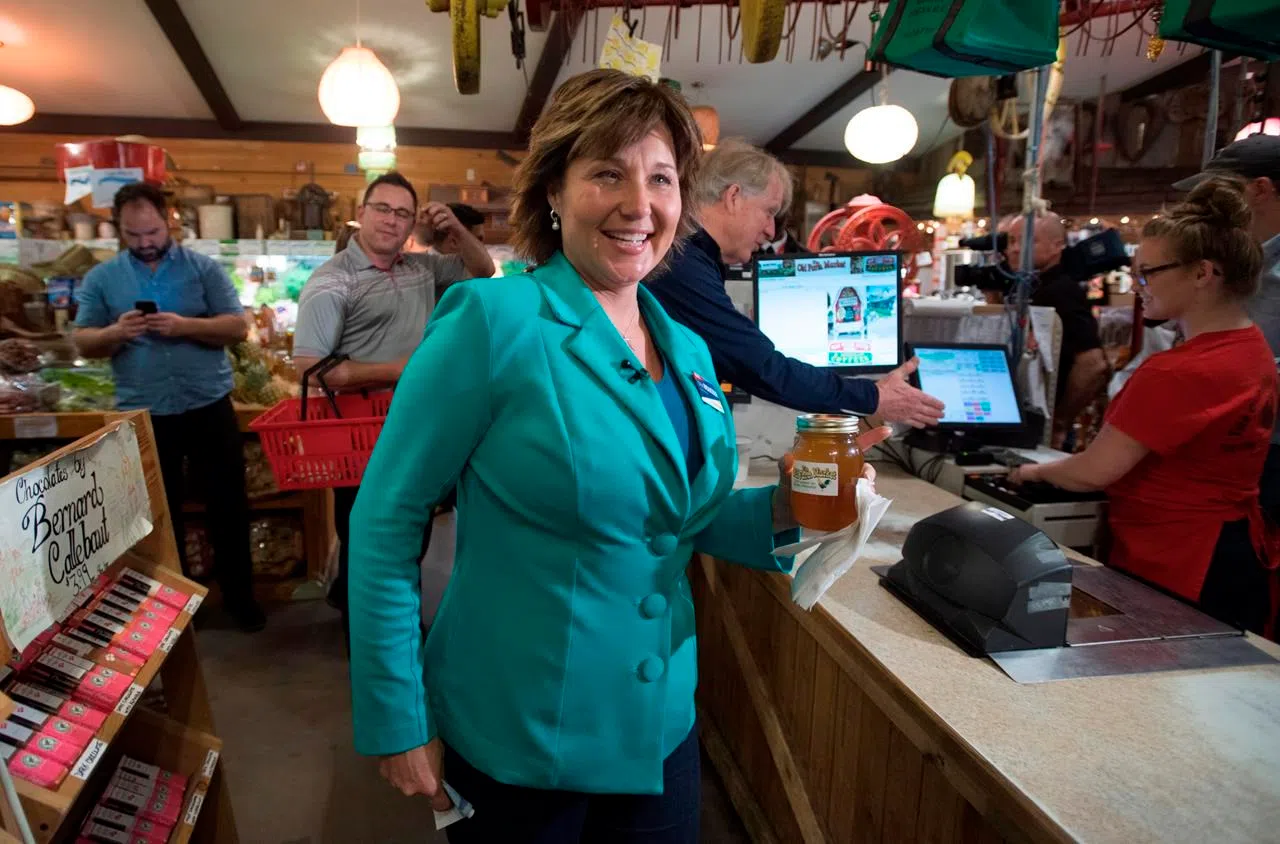
Clark still smiling about chances as B.C. election enters homeward stretch
PRINCETON, B.C. — Christy Clark appears unruffled by the rebuff of a shy one-year-old outside a cafe in southern British Columbia, who buries his head in his father’s shoulder.
Unfazed, the B.C. Liberal leader plucks a red-and-white pinwheel from a nearby flower box and coaxes a smile from the youngster, who accepts the spinning toy.
As she campaigns across the province, Clark, 51, comes across as similarly confident in her ability to win over B.C. voters in Tuesday’s election.
Clark is a seasoned campaigner and in the 2013 provincial election, her first as party leader, she was widely predicted to lose.



